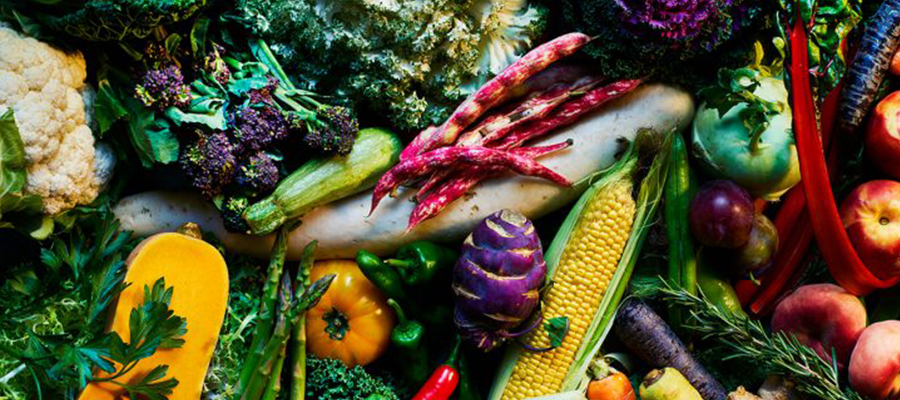
The average Canadian, shopping at your average grocery store, may have only a fewvegetables in their regular diet – carrots, peas, corn, lettuce, cucumber, tomato, broccoli. If you’re getting your half plate but are lacking in variety, you may be missing out on the benefits that a variety of vegetables can bring to your nutrient profile as well as your digestive health.
Take our Veggie Quiz to see how many of our selection of 84 vegetables you have in your regular dietary rotation.
More Veggie Variety = More Nutrient Variety
Each vegetable has its own cornucopia of nutrients – its unique symphony of minerals, vitamins, antioxidant, and fibres. To ensure you are getting enough of all the nutrients you need for optimal health, make sure you are getting a variety of vegetables on your plate. The colours of foods can often give us an indication of its nutrient profile. Leafy greens tend to have lots of minerals, dark foods (leafy greens, berries) are loaded with antioxidants, red/orange foods (carrots, red peppers) are chock full of vitamin A. So go ahead and eat the rainbow! Which means keep your plates as colourful as possible by eating vegetables of many colours – red peppers, orange squash, yellow/golden beets, dark green kale, purple eggplant.
More Veggie Variety = More Gut Bacteria Diversity
Many of the vegetables we eat contain indigestible fibres, which means your body doesn’t break it down. We used to think of this as “bulk” which can help us have smooth and regular bowel movements and prevent constipation. Now, we know that the story is much more complex. We have a whole biosphere of bacteria that live in our guts, and they thrive and feed off of our uneaten food – which includes fibre. There are 100 trillion bacteria living in our intestines, that’s more than the number of cells we have in our body, and a lot of organisms to kept fed. This new and vast field of research has already shown that our microbiome can help us in a variety of ways including fighting depression, regulating our immune system, and curbing obesity. One of the factors that is vital for a healthy microbiome goes beyond just the number of bacteria we house, but the diversity of bacteria. Our digestive tracts can be home to up to 1000 different types of bacteria, and researchers continue to find that a richness of bacterial diversity correlates with good health.
The BEST way to increase the types of bacteria living in your gut is to provide a rich variety of food, because different bacteria like different kinds of food. If you are only eating a few types of vegetables, even if you’re getting your half plate, you may not be encouraging different types of bacteria to grow. By taking in a wide variety of vegetables, you are feeding various types of bacteria and allowing different groups of bacteria types to flourish and thereby improving not only your gut health but also your overall health.
Naturopathic Doctor
